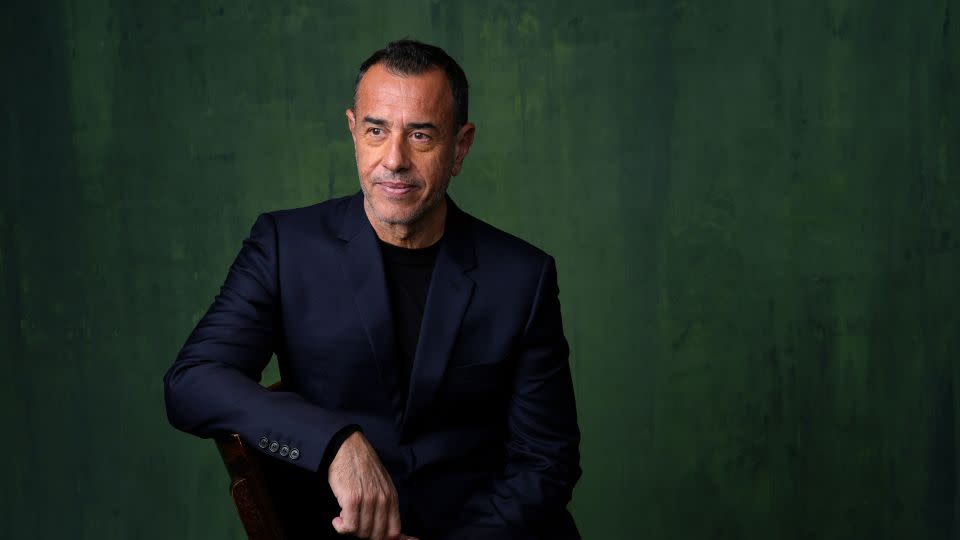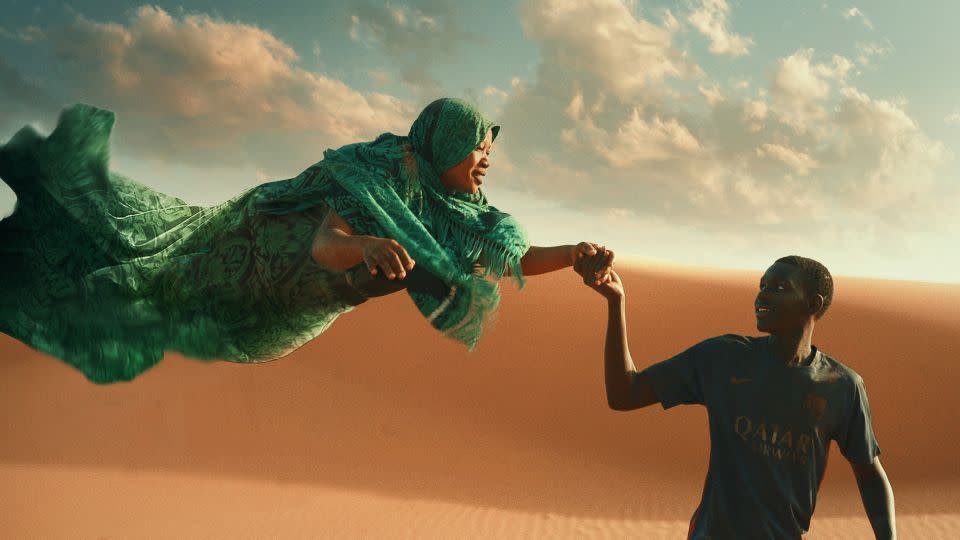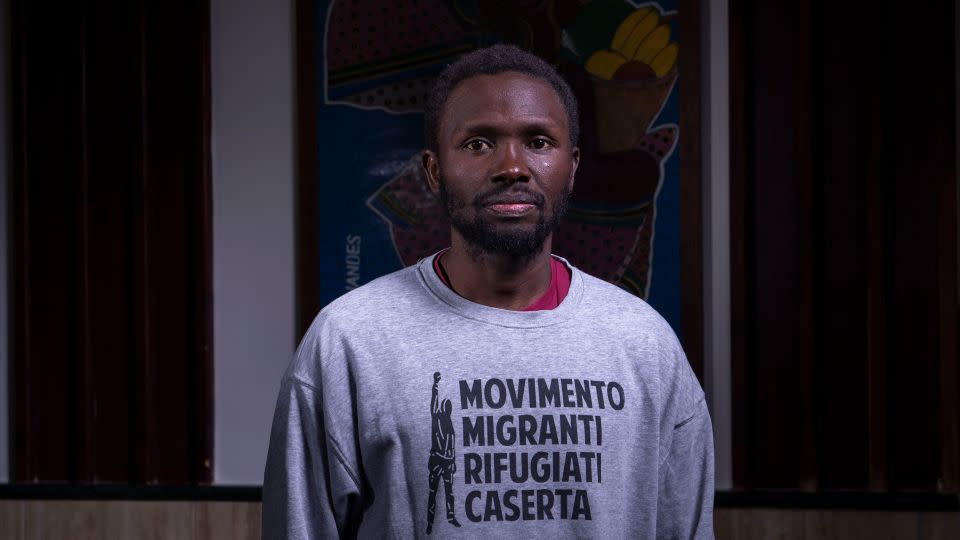The actors in this Oscar-nominated film weren’t told how it was going to end
Matteo Garrone knew how his movie would end.
But the Italian director waited until the last moments of filming to reveal the ending to the actors playing the lead roles.
“Io Capitano” tells the “Odyssey”-like story of migrant teens making a dangerous journey from Africa to Europe. It won best director at the Venice International Film Festival last year, and it’s among five films vying for best international feature film at this year’s Academy Awards. It also recently opened in US theaters, earning rave reviews from critics and a 96% score on Rotten Tomatoes.
The movie stars Senegalese actors Seydou Sarr and Moustapha Fall, playing the roles of cousins Seydou and Moussa, who share the actors’ first names but have very different backstories.
“From the outset, they didn’t know whether their characters would succeed in their journey or not,” Garrone has said.
For Sarr, whose performance garnered him the best young actor award at the Venice festival, the approach was particularly challenging.
“Everything was done on the spot. I’d come in for the day, the producer would give me pages, the translator told me the dialogue…and I slipped into character right away,” Sarr said in a press release about the film. “It was purely instinctual.”
That, Garrone says, helped make their performances feel more real. And it wasn’t the only thing he did to ensure the film’s authenticity.

He hopes the movie will expose injustices
The film’s title, which translates into English as “Me Captain,” is a reference to migrants coerced into becoming captains of vessels crossing the sea. It wasn’t an experience Garrone had lived personally, but hearing historical accounts captured his imagination — such as the tale of a 15-year-old from West Africa who managed to navigate a boat full of 250 people across the Mediterranean to safety in Italy in 2014 despite having no maritime experience.
To Garrone, the act was just as heroic as a quest in an ancient epic, but that’s not how he saw the stories portrayed. He says the teen who successfully steered that boat, for example, was jailed afterward for six months.
“Sometimes (it is) easier to put in jail people that don’t have (a) voice,” Garrone told reporter Hari Sreenivasan on CNN’s Amanpour earlier this year. “It’s injustice, and we hope that the movie will show these injustices to all the world and things will change.”
Since he only knew about the migrants’ experience from the Italian perspective, Garrone knew he would need to enlist the help of others to tell the story.

Migrants who’d survived similar journeys were extras on the film
The majority of the film’s dialogue is in Wolof, a language Garrone does not speak.
“That was the reason I decided immediately that the only way to make the movie was together,” Garrone told Amanpour, describing the team he assembled.
The director says he saw himself as an intermediary, connecting audiences with the migrants and their experiences. To do that, he interviewed migrants and researched their stories as he developed the film’s script, and he also had migrants standing by as consultants during filming.
“All the extras in the movie were real survivors, real migrants that already made that journey. So they could help me to recreate the authenticity of this journey, the details,” Garrone says. “And yes, we made this movie all together.”
Getting it right wasn’t just important for the sake of making an accurate film, Garrone says. A staggering statistic he came across in his research was never far from his mind: Since 2014, officials estimate more than 25,000 migrants have died trying to cross the Mediterranean.
“We wanted to be authentic for the respect of the people that made this journey,” Garrone says, “for the respect of the people that died on this journey.”

How one man’s experience helped shape the movie
For Mamadou Kouassi, the exploits depicted in the film aren’t just plot twists in a movie.
They’re echoes of his own experiences.
Kouassi was a script consultant on the film, meeting multiple times with Garrone and his co-writers. He left Ivory Coast for Europe in 2006. And he says he witnessed people abandoned in the desert, was separated from his cousin and was later detained in Libya — all events depicted in the movie.
“I started crying during the film,” Kouassi told CNN last year a day after its premiere. “This movie makes me re-experience my life 15 years ago. It is an emotion I had forgotten.”

Garrone says the movie’s plot is a composite of multiple migrants’ stories. But Kouassi’s was particularly helpful.
“Mamadou’s story was most precious to me, because his account revealed aspects that really surprised me and that I had totally ignored,” the director told CNN last year. “Those are the very human, intimate details that are at the base of the choice to leave their country.”
Kouassi told Amanpour it’s a choice many migrants keep making, despite hearing of the dangers ahead, because they’re determined to make their dreams come true.
“We decide to cross the desert at any cost. This is the reality,” he said.
It’s a reality he hopes many more people will understand thanks to Garrone’s attention to detail and his commitment to telling the story from the migrants’ viewpoint.
“Matteo did not leave anything (out),” Kouassi told CNN last year. “He explained — he exposed — the reality and the truth.”
And like its lead actors, the film’s audiences will have to wait until the end to find out what happens.
CNN’s Thomas Page contributed to this report.
For more CNN news and newsletters create an account at CNN.com

 Yahoo News
Yahoo News 
